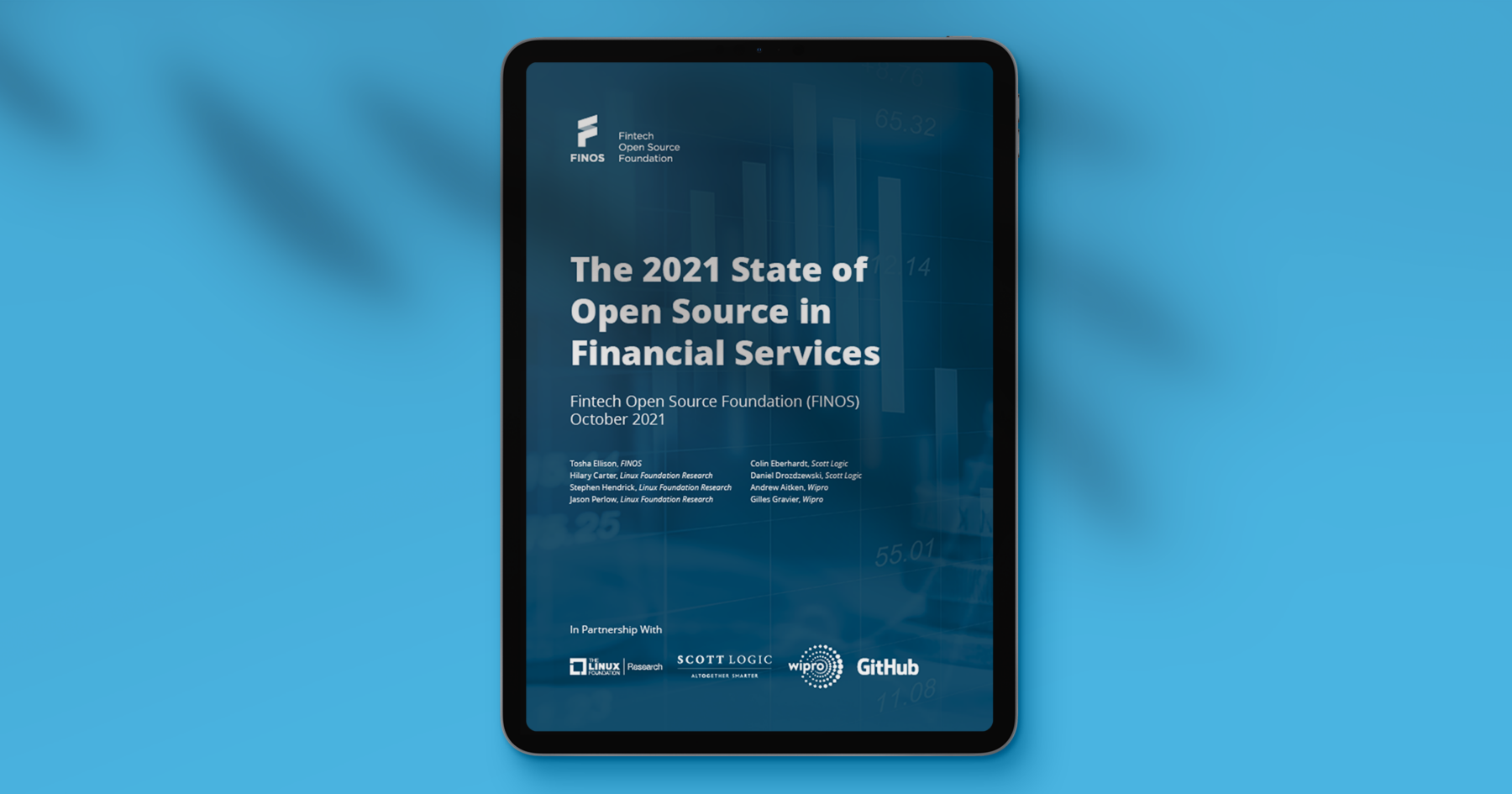Find out how to provision infrastructure and other resources in a public cloud.
Read More at Enable Sysadmin
Find out how to provision infrastructure and other resources in a public cloud.
Read More at Enable Sysadmin
 Linux Foundation Research has released the following report, in partnership with the Fintech Open Source Foundation (FINOS)
Linux Foundation Research has released the following report, in partnership with the Fintech Open Source Foundation (FINOS)
Abstract: The increased prevalence, importance, and value of open source is well understood and widely reported by many industry surveys and studies. However, the rate at which different industries acknowledge this shift and adapt their own business and technology practices to capitalize on open source opportunities differs considerably.
The financial services industry has been a long-time consumer of open source software. At the same time, open source software and standards development have not been activities at the core of financial services industry business models and technology strategies. Consequently, the levels of contribution to – and publishing of – open source, in software development, or in terms of allocating staff resources, are still in their infancy.
This report identifies the extent to which the financial services industry is active in open source, creating a baseline of understanding of governance, leadership, consumption, contribution, culture, and overall open source aspiration. Further, the report highlights the obstacles and challenges to improving industry-wide collaboration and concludes with a set of actionable insights for improving the state of open source in financial services.
Using Ansible makes provisioning virtual machines automated, flexible, repeatable, and fast.
Read More at Enable Sysadmin
In this interview, we sat down with Albert Lombarte, Executive Director of the Lura Project at the Linux Foundation to learn more about the project. Essentially, Lura is an Open Source API Gateway Framework created by KrakenD and contributed to the Linux Foundation. It’s one of the most important projects at the foundation as we live in an API-driven world. “An API Gateway Framework is a tool that is between the clients, the consumers of an API, and the backend services, which actually have the data that the users want to consume,” explains Lombarte. “So an API Gateway is a product that makes possible things like security, where rate-limiting, authorization, load balancing, all of that happens without needing to implement that in the backend part.“
Open19 project is looking at standardizing compute, storage and network so consumers and manufacturers can share technologies so users can use a mix of products without taking away the ability for manufacturers to differentiate their offerings. The Linux Foundation is hosting the Open19 project, and one of the founders of the project, Yuval Bachar, has also become the Linux Foundation fellow. We sat down with Bachar to learn more about the project.
Must-know Linux commands, run Podman on Windows, and more tips for sysadmins
Check out Enable Sysadmin’s top 10 articles from September 2021.
vwalker
Fri, 10/1/2021 at 1:35pm
Image
Image by Pexels from Pixabay
September 2021 was another excellent month for Enable Sysadmin. During the month, we published 23 new articles and received over 789,000 reads from more than 535,500 readers across the site.
Today, we are looking back at our top 10 articles of September to give you a chance to catch up on any of the great content you might have missed. In this list, you will see various topics covered, and we are confident that some, if not all, will be of interest to you.
Read More at Enable Sysadmin
With so many base container images to choose from, there’s no need to start from scratch when you need to spin up a new container.
Read More at Enable Sysadmin
New auto-update capabilities enable you to use Podman in edge use cases, update workloads once they are connected to the network, and roll back failures to a known-good state.
Read More at Enable Sysadmin
While you can’t—and shouldn’t—use sudo with rootless Podman, there are workarounds.
Read More at Enable Sysadmin